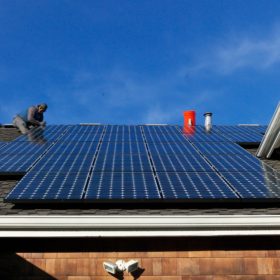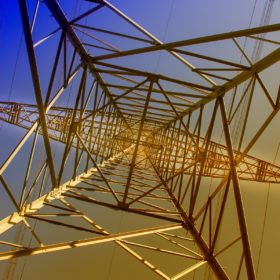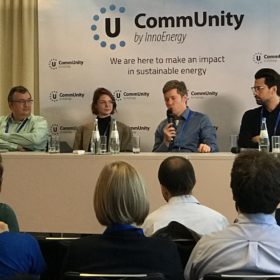A new sizing approach for PV self-consumption without storage
Spanish researchers are proposing a customer-driven method described as an intuitive tool for investors and engineers to assess how self-consumption from solar generation can be profitable. The method is said to take into account economic parameters such as taxes, depreciation and the cost of financing.
France deployed 707 MW of solar in first nine months of 2019
Solar electricity production increased by almost 9.2% in the January-September period, but installations barely changed from the first nine months of the preceding year.
Is it worth increasing cell efficiency? A new metric tells you when
A group of scientists is proposing a new metric – the value of efficiency – to calculate the maximum allowable cost to increase a cell’s efficiency and improve the levelized cost of electricity (LCOE). The researchers expect that more regional diversification may be seen at the global level in the years to come, with the proposed metric offering higher values in North America, Central and Northern Europe, Japan, Australia, and New Zealand.
Ofgem’s plan for network charges triggers renewables sector backlash
Ofgem passed its long-awaited, controversial plan for network charges last week, despite earlier warnings against the move. The UK electricity market regulator’s Targeted Charging Review has provoked a backlash in the renewables sector, as many believe that the plan will damage the economics of distributed energy resources and unsubsidized onshore wind and solar development.
Cuba introduces new rules, fiscal incentives for solar prosumers
With Decree No. 345, the Cuban government aims to encourage consumers to install rooftop PV projects. The new rules will help to facilitate the sale of surplus power within the national electricity system, among other matters.
Goa to extend solar PPA with NTPC by 3 more years
The government of Goa, now reeling under severe electricity shortages, has decided to extend its solar power purchase agreement with NTPC Vidyut Vyapar Nigam by three years, following a complete lack of interest in the Indian state’s recent solar tenders.
Clean energy must be rolled out six times faster
To have any hope of restricting global heating to a maximum of 1.5 degrees Celsius, the renewables success story which saw 108 GW of solar deployed last year needs to be cranked up to the next level – and fast.
Renesola exits Vietnam, India and Korea
The Shanghai-based project developer – which will soon relocate to the U.S. – says the profit margins are not high enough in those markets and has cancelled its project pipeline in the nations. The company has also changed its CEO after less than five months and is on a drive to reduce capital costs.
Not even crumbs for the solar industry in UK party election manifestos
The political statements issued by the Conservatives, Labour, the Lib Dems and even the Green Party almost entirely ignore solar power amid a welter of vague ambitions ahead of the December vote. The increasingly obvious effects of climate change have clearly entered the consciousness of voters, though – the net zero commitment even got as high as page 55 of the Conservatives’ 62-page document.
Financing African projects remains a struggle
Innoenergy’s recent conference in Berlin repeated the argument financing renewable energy projects in Africa remains a struggle, however it also showcased some hopeful case studies.










